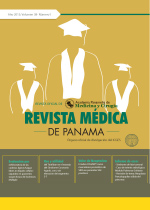Evolución de los trasplantes renales en América Central y el Caribe.
Autores/as
DOI:
https://doi.org/10.37980/im.journal.rmdp.2017460Resumen
[Evolution of kidney transplants in Central America and the Caribbean]
Resumen
En 1969, en Costa Rica se inició el trasplante renal en América Central y el Caribe, siendo este de donante vivo, como igualmente inició en el resto de los países de la región en los años siguientes. La integración de la región ha sido el motor impulsor de esta actividad en el área, comenzando en q en 1998 con el nacimiento de la Sociedad Centroamericana y del Caribe de Trasplante Renal (SOCECATRE) y después la I y II Reunión de Centroamérica y del Caribe de Trasplante Renal en el 2015 y 2017 respectivamente. En materia de organización a nivel nacional en cuanto a donación y trasplante, menos de la mitad de los países cumplen con ello, a pesar de que todos tienen un instrumento legal que señala la creación de este organismo. Todos cuentan con profesionales entrenados en España en coordinación de trasplante pero solo funcionan en 4 países, los mismos que tienen lista de espera nacional, pero solo Cuba y Panamá, cuentan con un registro nacional de trasplante. Hasta el 2016, se habían hecho 11,443 trasplantes de donante vivo, 3,254 de donante fallecido y 432 privados para hacer un gran total de 15,129.
Abstract
In 1969, in Costa Rica, kidney transplantation began in Central America and the Caribbean, being this a living donor, as it also began in the rest of the countries of the region in the following years. The integration of the region has been the driving force behind this activity in the area, beginning in 1998 with the birth of the Central American and Caribbean Kidney Transplantation Society (SOCECATRE) and then the First and Second Meeting of Central America and the Caribbean. of Kidney Transplant in 2015 and 2017 respectively. In terms of organization at the national level in terms of donation and transplantation, less than half of the countries comply with it, even though they all have a legal instrument that signals the creation of this organism. All have trained professionals in Spain in coordination of transplantation but they only work in 4 countries, the same ones that have a national waiting list, but only Cuba and Panama, have a national transplant registry. Up to 2016, 11,443 transplants from a living donor, 3,254 from a deceased donor and 432 private transplants had been made to make a grand total of 15,129.
Publicado
Número
Sección
Licencia
Derechos autoriales y de reproducibilidad. La Revista Médica de Panama es un ente académico, sin fines de lucro, que forma parte de la Academia Panameña de Medicina y Cirugía. Sus publicaciones son de tipo acceso gratuito de su contenido para uso individual y académico, sin restricción. Los derechos autoriales de cada artículo son retenidos por sus autores. Al Publicar en la Revista, el autor otorga Licencia permanente, exclusiva, e irrevocable a la Sociedad para la edición del manuscrito, y otorga a la empresa editorial, Infomedic International Licencia de uso de distribución, indexación y comercial exclusiva, permanente e irrevocable de su contenido y para la generación de productos y servicios derivados del mismo. En caso que el autor obtenga la licencia CC BY, el artículo y sus derivados son de libre acceso y distribución.






